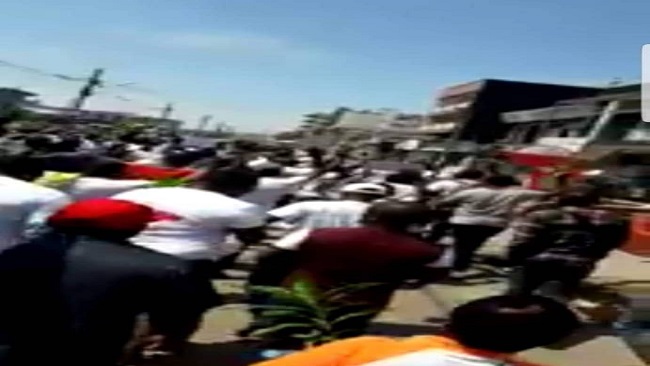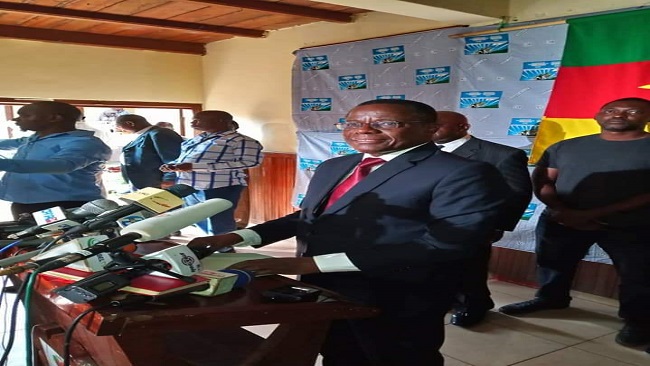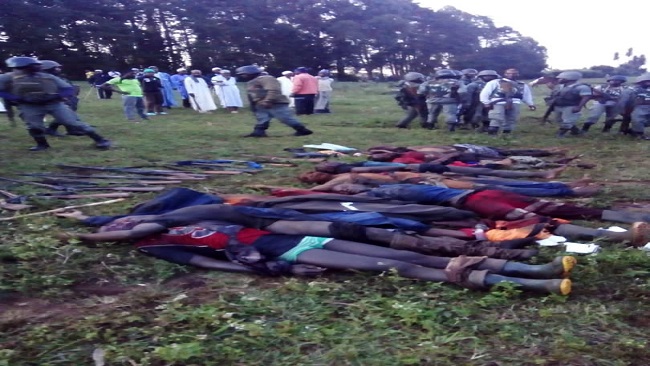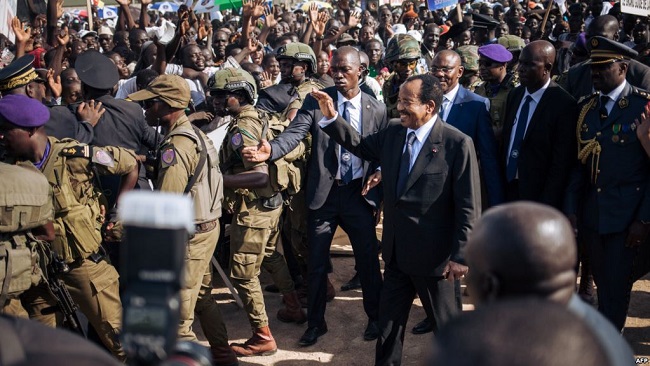30, January 2019
Francophone Crisis: Whereabouts of Maurice Kamto remain unkown 0
The whereabouts of Cameroon’s opposition leader Maurice Kamto remain unknown. This follows his arrest on Monday night in Douala alongside several other members of his party, the Cameroon Renaissance Movement.
He was arrested at another politician’s home in the country’s economic capital Douala following weekend protests against President Paul Biya.
The opposition leader still claims to have won last October’s election, which saw 85-year-old Paul Biya secure a seventh consecutive term in office.
A press release from the party on Tuesday called on members and sympathisers to remain calm and attentive to instructions the party national directorate would give.
Source: Africa News

























31, January 2019
Biya Francophone regime accused of ‘decapitating’ opposition party 0
Cameroon’s main opposition MRC on Tuesday accused authorities of trying to “decapitate” the party after its leader Maurice Kamto was arrested in the country’s economic capital Douala.
Mr Kamto, who came second in last year’s presidential election which he claims was fixed, was detained on Monday at the home of another politician, prompting some 300 people to protest outside.
The Movement for the Rebirth of Cameroon (MRC) “strongly condemns these unjustified and announced political arrests, whose hidden aim is to decapitate the MRC and Maurice Kamto’s winning coalition,” the party’s vice president Emmanuel Simh said in a statement.
MRC’s treasurer Alain Fogue was arrested in the capital Yaounde on Monday night, according to the statement.
DISPUTE
Cameroon’s veteran leader Paul Biya, in power for 36 years, won a seventh consecutive term in last October’s presidential election but Mr Kamto has repeatedly claimed he was the rightful winner.
President Biya, 85, has ruled the West African country with support from the army, government administrations and the Cameroon People’s Democratic Movement (RDPC) party that he created in 1985.
He was declared winner of last year’s election with 71 percent of the vote, which repeatedly faced allegations of fraud.
Mr Kamto received 14 percent in the election, according to the official figures, but his party has held sporadic protests since to dispute the result.
DESTABILISATION
Communication Minister Rene Emmanuel Sadi has accused Mr Kamto and his supporters of “attempted destabilisation” of the government. On Saturday 117 people were arrested during protest marches in several towns.
Mr Kamto’s former election campaign head Paul-Eric Kingue and rapper Valsero were among those detained over the weekend. The MRC on Tuesday called on its supporters to remain “calm” and affirmed its commitment to respect the law.
AFP